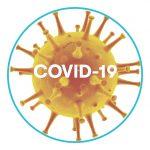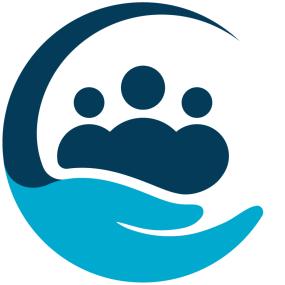5 Things I wish I’d known before COVID…. (pt. 3)

COVID-19 has presented challenges unlike anything we have faced before. In this blog, colleagues share their experiences by describing five things they wish they had known.

ICM Trainee, Thames Valley.
Intensive care nurses are in really short supply. For so long I have been concerned about how short we are of intensive care doctors in the UK, without really considering that it is even worse for my nursing colleagues. This crisis has highlighted that increasing intensive care workforce numbers across the multi-disciplinary team must become a department of health and social care priority.
Talking to relatives over the phone when they can’t come to the hospital is really hard. It is not something I was trained for and not something I feel comfortable doing. Breaking bad news in person is awful, but so much more humane. Breaking bad news over the phone when you can’t see the other person, but can hear their anguish is hard to bare. This particular type of communication should from now on be taught during medical training.
I might not see my parents for a long, long time, probably not until an effective vaccine is found. I should make more time to see them with my kids, their grandchildren more often. Seeing many people in their 60s dying has really brought home my own parents’ mortality and that they won’t be around forever.
It is more important than ever to be organised. Nipping in and out of bays to adjust the ventilator/look at the patient/ask the bedside nurse something is no longer possible. Everything you need to do for a patient has to be coordinated and communicated effectively and efficiently.
Oxygen can run out! I never even considered that learning about Vacuum Insulated Evaporators for the FRCA would ever be so relevant and useful. Making contingency plans for oxygen shortages was previously unthinkable. Having knowledge about how the hospital oxygen supply works enables me to understand and react appropriately to overall hospital oxygen requirements.

Clinical Director in Adult Critical Care, Leeds and Director of Critical Care, Nightingale Hospital Yorkshire and the Humber.
The NHS can be agile. Expanding ICU capacity, and then, when we thought it might not be enough, building huge new NHS hospitals in existing buildings. The NHS has risen to the challenge and provided critical care to those in need of it. Surge capacity has been enough so far, and there is a “plan B” available to us, should we need it.
Continuous improvement can happen even in a hurry. It isn’t enough to just expand capacity. There is a need to expand in a safe, considered way, to record the learning and share it with each other. Every organisation has shown that a well-embedded culture of continuous improvement can survive even the biggest crisis.
Complex Problem – no problem. Changing the way an entire hospital works, and sometimes the whole local healthcare system, has required some incredibly creative thinking. The ingenuity of colleagues in solving the most complex operational challenges has been remarkable. And all achieved at a pace that cannot be matched when weekly meetings are held around a table. Harnessing the innovative brilliance of NHS staff is something we should make more time for when restoring our non-Covid related services.
Field Hospitals? Just a few weeks ago, the term “field hospital” was being used to describe the Nightingales. I’ve never been to a field hospital, but it’s clear to anyone who has visited a Nightingale hospital that these are NHS hospitals, designed to deliver the same quality of care as long-established acute hospitals.
Educators. I’ve watched workforces being upskilled, simulation sessions springing up in unusual places, theatre teams and ICU teams sharing their skills and unfamiliar equipment being mastered. I’ve watched an army of educators appear en masse to build new training programmes in frighteningly short time scales. And they’ve then gone on to tirelessly deliver training over and over again until everyone has the confidence to care for ICU patients. Our educators are dedicated, skilled and incredibly hard working. Little of what has been achieved in meeting the challenge would have happened without them.

Consultant in ICM, London.
Don’t over-estimate your own worth. As a clinical lead I had to accept very quickly that there were others in the team who had the skills, network and drive to get things done quickly. Our normal way of doing things; meetings gaining consensus to some extent had to change. Realisation that we had to take the senior nurses along with us as quickly was not as obvious as it seems.
Stick to the basics. Whilst elements of innovation can be good; they need to be managed. The nurses assimilated into the ICU have found it overwhelming. A basic plan clearly articulated is required. Not the time for a novel ventilation technique necessarily.
It’s difficult to expand your technical team. It’s relatively easy to re-deploy nurses and doctors from around the hospital as they exist. The team who have had the biggest impact have been our technical team as there aren’t lots of them in other areas of the hospital. I did flag this early on with hospital management but they have overlooked this lynch pin service. The technical team have needed a lot of support and deserved positive feedback.
Don’t forget your family. The impact on children is enormous; yes it’s obvious but even with dual key-worker status and ‘school’ still open, the impact on young children has been enormous. Plus lots of meetings happening at home via Zoom etc which exposes them further; the pandemic is a whole-life event. My consultant physician wife has been redeployed to Covid duties; we are effectively working shadow shifts. Very difficult to switch off.
Night shifts are hard. I have found this the hardest bit; coming back from Covid-19 didn’t help as very fatigued but as a 50+ trying to stay up all night and then force sleep the following day I think has been the biggest personal change and its not clear when it will end.
Related Content
Written by: Jack Parry Jones, Nicki Credland, Guy Parsons
Written by: Ollie Cohen, Hannah Grafton-Waters, Greg Barton
Written by: Ella Terblanche, Anand Krishna, Rosie Baruah

